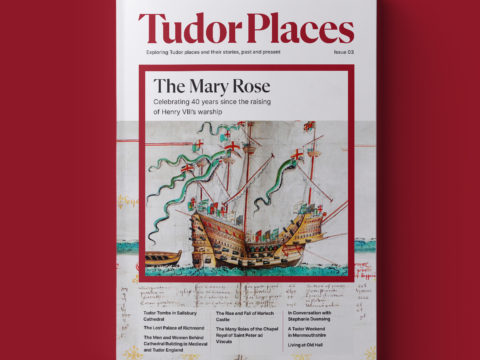Thomas More: Life Story
Chapter 16 : Danger
In early 1533, Henry married Anne Boleyn. At the beginning of May, the new Archbishop, Cranmer, pronounced the King’s marriage to Katharine of Aragon to have been invalid from the beginning, and his union with Anne to be legitimate.
Anne was crowned on 1st June. More did not attend the coronation, although he gave no reason for non-attendance. Three of his friends, including Tunstall, urged him to compromise. He responded to them with an anecdote about the Emperor Tiberius, who had passed a law that condemned offenders to death, unless they were virgins. When a young woman was presented to him, guilty of the crime, he was puzzled as to what action to take. One of his courtiers spoke up, advising that the girl should be relieved of her virginity, ‘first deflowered, then devoured.’
In More’s analogy, the Bishops who had retained their figurative virginity by not commenting on the marriage, would be led astray – those who attended the coronation would then be asked to publicise it, then write about it and would finally be both ‘deflowered and devoured.’ He himself intended to keep his virginity. Such a refusal to compromise is unlikely to have endeared him to men who shared his scruples, but who were able to overcome them.
The coronation of Anne galvanised some opposition to the King, which, in part, centred around a woman known as the Holy Maid of Kent – Elizabeth Barton. For some years Barton had seen visions and heard voices which she believed to come from God. Having been examined by Archbishop Warham, she had been found to be of good character, and sent to a monastery. She had spoken to Wolsey, and even to the King himself.
All was well with her prophesying until, probably manipulated by more sophisticated people, she foretold that if Henry were to abandon Katharine, he would die within the year. The matter came under investigation by Cromwell. More had talked to her on some occasions but denied ever discussing any political matters, or doing anything other than asking her to pray for him.
More kept sedulously away from any discussion about Elizabeth Barton or her prognostications. He had never had any sympathy with miraculous doings and was far too astute to become embroiled in treasonable speculations. All he would say when questioned about Barton was, that, since she had already told Henry about her visions, there was no point in him talking about them and confirmed that he had asked for her prayers.
Despite there being no evidence of any treasonable behaviour, More was beginning to feel that the net was tightening around. Still he continued to write against ‘heretical’ ideas.


